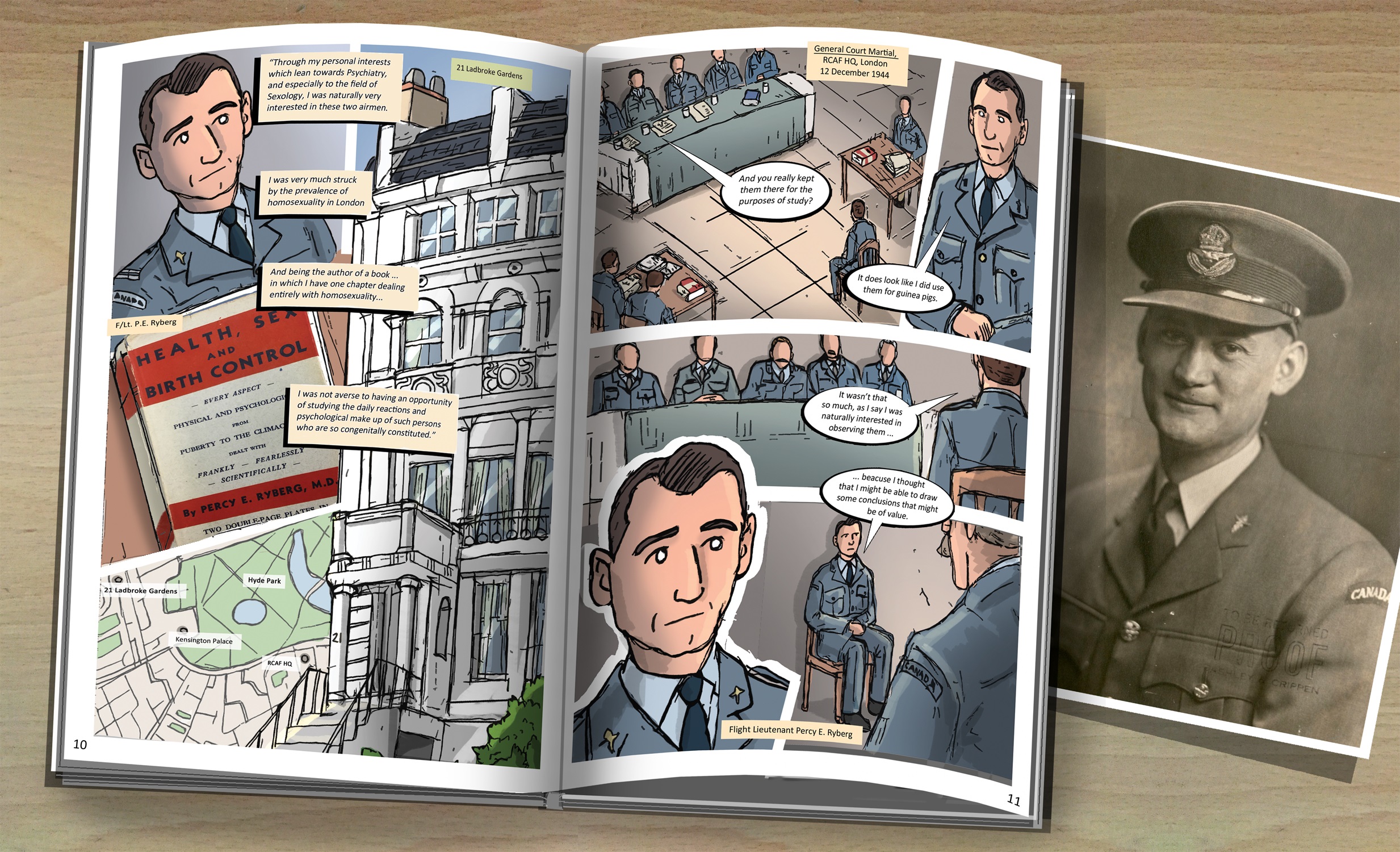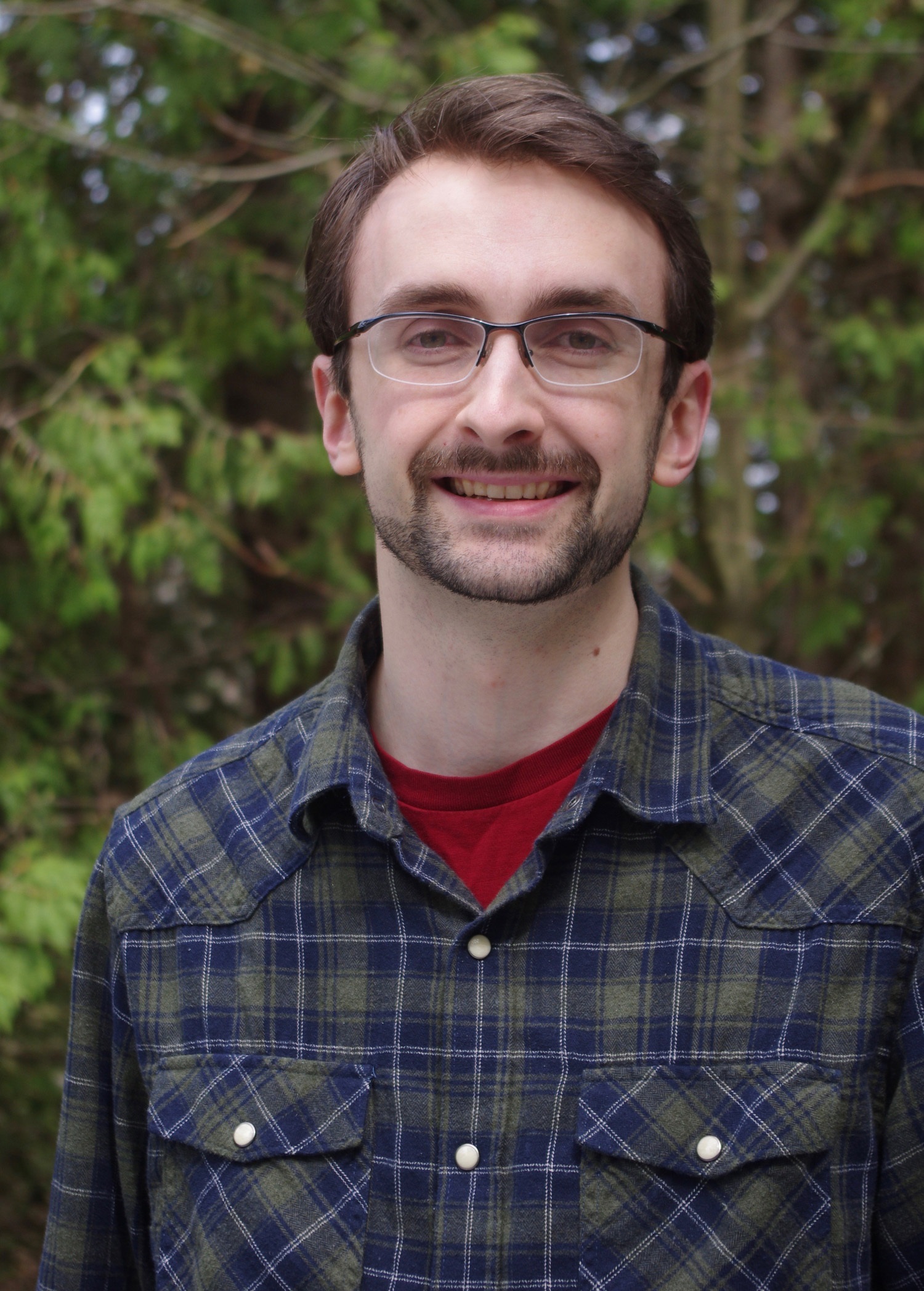Written by guest blogger Matthew Barrett.
I am honoured to receive CJH’s Dietz Essay Prize for my article, “Conduct Unbecoming an Officer and a Doctor: Medical Attitudes toward Homosexuality and the Court Martial of Dr. Percy Ryberg.” The article examines the Second World War case of an RCAF medical officer charged for renting a London apartment with airmen later accused of homosexual activities. The unusual circumstances of Ryberg—a self-described medical expert on human sexuality—standing trial made the court martial an exceptional forum to explore the medicalization and criminalization of homosexual conduct in the wartime context. As my current postdoctoral project at the Canadian War Museum is centred on the creation of graphic histories, below I have included my illustration of a scene from Ryberg’s fascinating case.

The opportunity to publicize your research and writing is always welcome vindication of the hard work invested into every article. The route from the initial idea to submission to publication, however, can be long and daunting.
My first experience with academic publishing and the peer-review process began with an essay submitted to a history journal just before I began graduate school several years ago. It ended with a sixteen-page single-spaced dissection by one of the leading historians in the field (suspecting my work as that of a novice, this reviewer had agreed to forgo anonymity in the blinded process). While reading frank criticism of your own work is difficult, and perhaps for some quite discouraging, it is essential and immensely beneficial to academic growth.
Throughout my MA and PhD degrees, I remained grateful for the time and attention that this reviewer and the editor gave to critically assess a submission that they so clearly recognized was not ready for publication. Learning from this early experience only enhanced my abilities as a writer and historian, and in fact, gave me the confidence to submit far more polished and in-depth research for publication later while in graduate school.
As useful as it was to my academic development, sending unsolicited manuscripts to journals is not necessarily the best introduction to scholarly publishing for students. That is why the Dietz Prize is such an exceptional opportunity and challenge for graduate students to revise and submit their work in an encouraging and welcoming environment. The prize sets a clear goal for students to work toward and creates an incentive to devote the necessary energy and time to research, write, and edit an original article contribution for peer-review.
While I am very pleased to have won this year’s competition, it is important to understand that not winning does not mean the end of the work. The knowledge and understanding gained from the competition can be just the initial steps on the path toward eventual publication. My first submission for the prize three years ago was not successful, but my time and effort did not go to waste. Instead I revised and improved that submission, which was published in Histoire sociale/Social History, and won its 2018 best article prize.
I urge graduate students to submit an article for CJH’s Linda F. Dietz Essay Prize competition. It offers great insights into the academic publishing process, gives you a unique chance to publicize interesting research, and regardless of the outcome it will make you an improved writer and a better scholar.

Matthew Barrett received a PhD in History from Queen’s University in 2019. He is currently a SSHRC postdoctoral fellow at the Canadian War Museum. As an artist and historian his postdoc project explores graphic and illustrative storytelling as forms of historical interpretation and analysis.
His winning article in Canadian Journal of History entitled “Conduct Unbecoming an Officer and a Doctor: Medical Attitudes toward Homosexuality and the Court Martial of Dr. Percy Ryberg” is free to read for a limited time here.
Comments on this entry are closed.